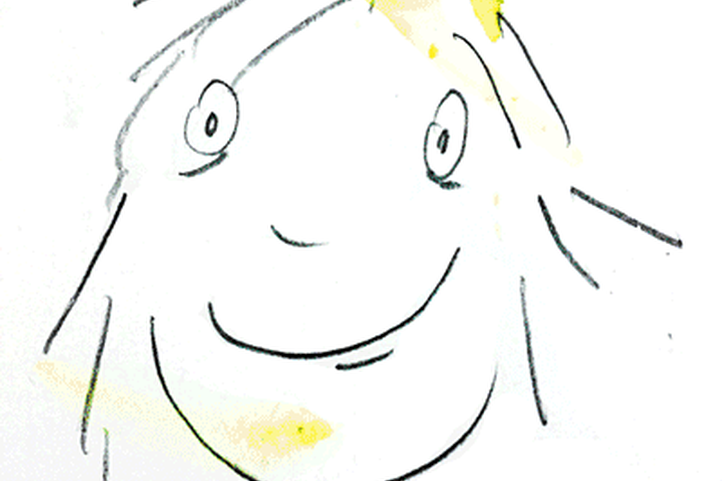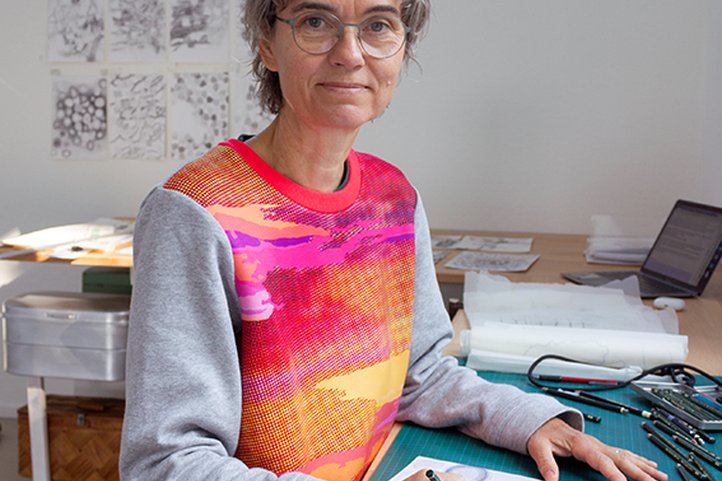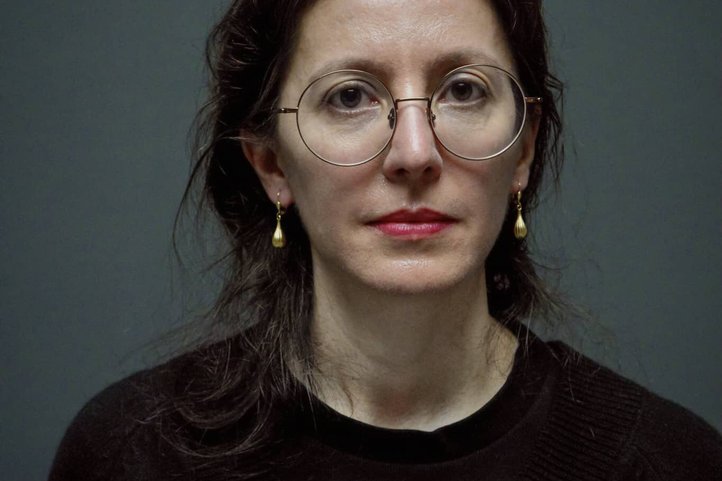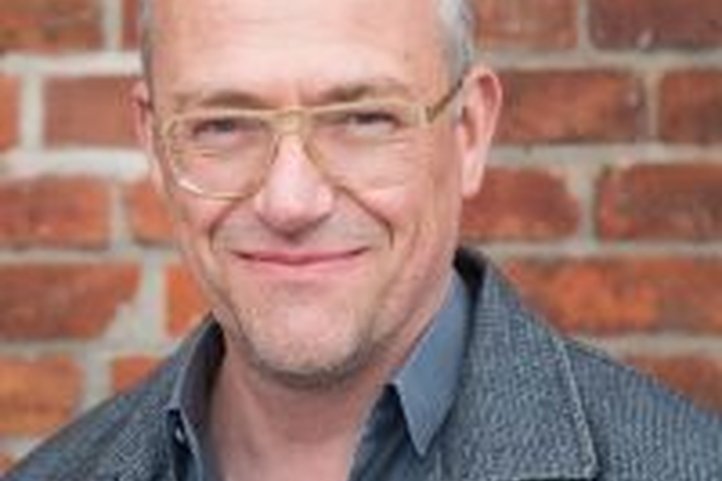Classes Fine Arts
With nine classes, Fine Art at the HfK is one of the smaller art degree programmes in Germany, which contributes to the formation of a solidary community and promotes a lively exchange.
- Class of Prof. Kati Barath (Figurative painting)
The students' artistic work, their preoccupation with and engagement with painting are the focus. Weekly plenaries provide continuous space to jointly find and develop a linguistic form for the work. Accompanying excursions, exhibition and studio visits are organised to give the students insights into different artistic contexts. Joint exhibition projects and guest visits are an equally important part of the teaching. The plenary is held bilingually, with both German and English used as languages of communication.
In addition, individual discussions are available by arrangement to address students' specific needs and development goals. Guests are welcome to register by email to attend the lectures.
- Class of Prof. Stephan Baumkötter (Painting)
Questions about the class are answered by:
- Class of Prof. Andree Korpys / Prof. Markus Löffler (Space and body concepts)
Specifically includes the investigation of space and the body, in its physical and media expression, taking artistic and social issues into account.
- Class of Prof. Katrin von Maltzahn (Drawing/Painting)
The teaching in the drawing/painting class consists of group events (plenary) and individual discussions. We discuss individual works, processes and ideas and deal with the contents of art. This is enriched by excursions, exhibition visits, project work, collaborations, guests and thematic workshops.
- Class of Prof. Julika Rudelius (Time-based Media)
Questions about the class are answered by:
- Class of Prof. Natascha Sadr Haghighian (Sculpture)
Shaping and designing also involves thought processes. That is why talking, discussing, asking, and investigating are an important part of our classroom activities.
In addition to working in and around the studio, we go on smaller and larger excursions, cook together, read texts together and ask ourselves how the world works and what works in it as art and what doesn't. We look around (sometimes locally) for the sources of our actions and creating and try to understand them. Where does material come from? What is a work of art and what is it part of? What are the often subtle differences between a thing, an object, a commodity and a work of art? By what natural and unnatural processes are they formed? We, being humans, too, are part of the forces that shape this planet, right? But is this man-made earth a natural or unnatural phenomenon? Nature, literature, migration, the environment are some of the topics we discuss and question in class. We research, try out, move, think and listen. We do.
In class we mostly speak German and English.
- Class of Prof. Asli Serbest (Temporary Spaces)
Questions about the class are answered by:
- Class of Prof. Ingo Vetter (Sculpture with classical materials)
We have moved into the new building and the summer semester will be the first time together with the students and teachers of Integrated Design. We will establish the workplaces and routines in the new studio and develop joint exhibitions with the official opening ceremony of the new building and the University Days. We also want to plan an excursion. The “Reallabor Kunst am Bau” (real-world art in architecture laboratory) will continue and the realisations will begin this semester. Ellen Blumenstein, Ruth Lübke and I will oversee the artistic projects. The development of the accompanying publication is supervised by Andrea Rauschenbusch and Gregor Schreiter in a separate course. Planning for the project on artistic perspectives on mobility, in cooperation with Heritage Space Hanoi, is being finalised and is scheduled to begin in September 2023. The draft monument for the abused and murdered children in the orphanage is in place and will be approved by the authorities.
Individual discussions
Each student should at least make one appointment. Please do prepare those individual meetings! Send me pictures and videos or maybe texts on work you wish to discuss a day prior to the meeting. Of course, you may also send over sketches or description of your projects.Plenary
The plenary is the forum to present you work and for discussion on the arts. Do plan at least one such presentation per semester - Class of Emma Waltraud Howes (guest professorship) (Sculpture and installation)
I am excited to collaborate with Freie Klasse and share my transdisciplinary approach to creative processes. With a focus on expanded sculpture and performance, we will explore how small shifts in perception and intention can build a cohesive body of work. I offer tools for transforming embodied experiences and research, to generate material and conceptual frames using techniques like translation, scoring, sculpting, and muscular/sonic bonding—giving form to intention and intention to form.
The approach of Freie Klasse is not defined by a singular discipline, but open to redefinition, fostering the interconnection of artistic practices. As a semi-autonomous and self-organized space, we thrive on collaboration and adaptability.
Weekly meetings - held in English - provide space for dialogue, feedback, and exchange, evolving to meet the changing needs of individuals and the group. The structure of the weekly plenum enables collaborative decision-making and shared institutional responsibility between the professorship and the class. These Plenaries emphasize reciprocity and critical engagement, challenging traditional pedagogies to develop approaches tailored to the class's intentions.
With a revolving professorship introducing new perspectives every one to two years, the class grows by integrating the experience and embodied knowledge of each individual. Freie Klasse supports students’ artistic development while encouraging the sharing of work and participation in collective projects.
For further inquiries:
Emma Waltraud Howes: ehowes@hfk-bremen.de
Freie Klasse: freieklasse@hfk-bremen.de - Class of James Richards (deputy professorship) – ex. Prof. Dr. Rosa Barba (Extended spatial concepts, film and conceptual photography)
Questions about the class are answered by:



